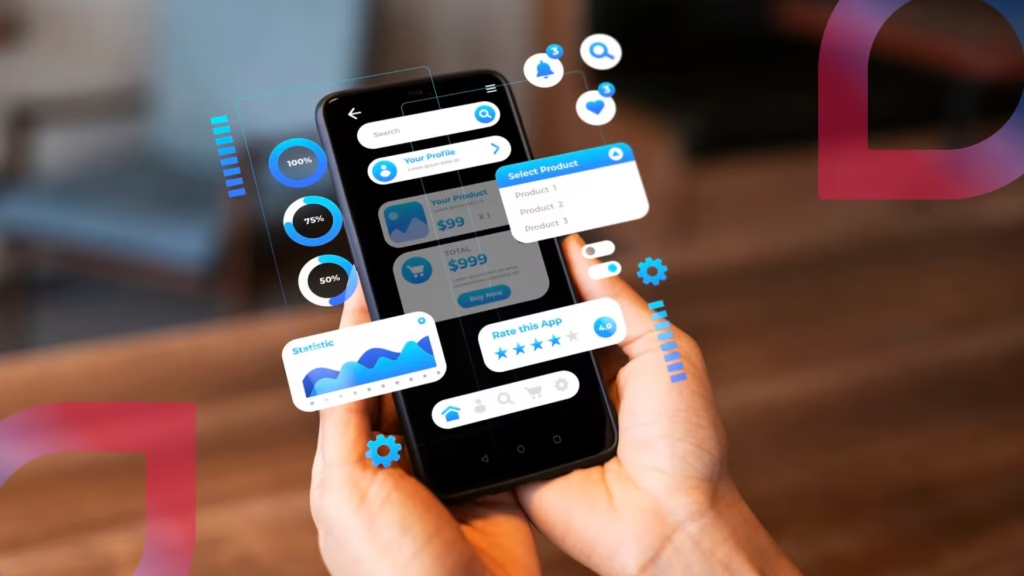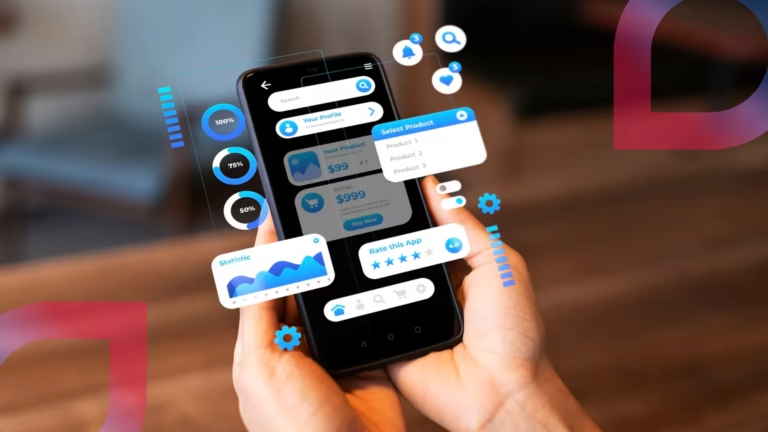
The Growing Importance of Mobile Apps in Education
In recent years, mobile app development has become a pivotal factor in the transformation of the education sector, particularly within coaching institutes. The adaptation of technologies that prioritize mobile accessibility aligns with the changing dynamics of student preferences and behaviors. As the trend towards online learning continues to soar, coaching institutes find themselves increasingly reliant on mobile applications to enhance their educational offerings.
One notable trend is the shift towards personalized education, which mobile apps facilitate through tailored learning experiences. These applications enable students to access resources and courses at their convenience, allowing for a more flexible approach to their learning journeys. This customization helps students to engage with the material more effectively, catering to individual learning styles and preferences. As a result, coaching institutes that integrate mobile app solutions stand to benefit from improved student performance and satisfaction.
Statistics further reinforce the importance of mobile apps in education. Research indicates that a significant percentage of students now prefer using their smartphones as their primary learning tools. The widespread use of mobile devices among young learners underscores the necessity for coaching institutes to adapt their educational approaches. By leveraging mobile application technology, these institutions can enhance accessibility and promote continuous learning, ensuring that students remain engaged and motivated.
Furthermore, mobile apps provide real-time feedback and facilitate communication between students and educators, creating a more interactive educational environment. This level of engagement is essential in keeping students informed and connected, thereby nourishing a community of motivated learners. In a competitive educational landscape, coaching institutes must recognize and embrace the importance of mobile app development to remain relevant and effective. The trend not only augments the learning experience but also prepares students for the increasingly digital world they will navigate in their future endeavors.
Key Features of an Effective Coaching Institute Mobile App
In the evolving landscape of education technology, mobile app development is vital for coaching institutes aiming to enhance the learning experience. A well-designed mobile application can serve as a robust platform for delivering educational content, managing courses, and fostering communication between students and instructors. The following key features are critical for ensuring that a coaching institute’s mobile app is effective and user-friendly.
The first essential functionality is course management. This feature allows students to easily view course offerings, schedules, and materials. Users should have the capability to enroll in courses, track their progress, and access resources seamlessly. By facilitating organized course management, institutes can ensure that students remain informed and engaged.
Another significant component is the inclusion of online assessments and interactive quizzes. These tools not only provide students with instant feedback but also help instructors gauge their understanding. Incorporating quizzes fosters an interactive learning environment, making engagement more enjoyable. Furthermore, video lectures can further enrich the learning experience by giving students access to high-quality instructional materials anytime, anywhere.
Push notifications also play a crucial role in keeping students updated with important announcements, upcoming assessments, or changes in schedules. Timely updates help students manage their study time effectively while reinforcing important information.
Equally important is ensuring the app has a user-friendly design. A straightforward interface enhances navigation, allowing users to easily find essential features without frustration. Moreover, incorporating community features, such as discussion forums and peer support groups, fosters collaboration among students. These platforms provide opportunities for learners to engage with one another, share knowledge, and enhance their educational journey.
In essence, an effective mobile app for coaching institutes should encompass these key features to optimize the educational experience and promote an interactive learning environment.
The Development Process: From Concept to Launch
Mobile app development for coaching institutes involves a structured approach that begins with ideation and progresses through multiple stages until the final launch of the application. The initial stage is planning, which includes defining the app’s objectives, identifying the target audience, and assessing the competition. At this point, it is essential to establish clear goals for how the app will serve students and enhance their learning experience.
Following the planning phase, the design stage begins. This encompasses the creation of wireframes and user interface (UI) designs that prioritize user experience (UX). Ensuring that the mobile application is both aesthetically appealing and user-friendly is crucial, as it can significantly impact student engagement and satisfaction.
The development phase involves the writing of code and the integration of various features, such as video lectures, quizzes, and progress tracking. Choosing the right technology stack is paramount during this stage. Developers must select appropriate programming languages, frameworks, and tools that align with the goals of the coaching institute. Opting for native app development might be beneficial for performance, while cross-platform solutions can offer cost efficiency and a broader reach.
Once development is underway, rigorous testing is essential to identify and resolve any issues before the launch. This phase requires gathering user feedback, which is vital for understanding how the app performs in real-world scenarios. Iterative development practices allow for refinements based on this feedback, ensuring the application meets user expectations and enhances its overall functionality.
Finally, after thorough testing and revisions based on user insights, the app is ready for launch. A successful launch strategy should encompass marketing efforts to create awareness and draw users to the application, demonstrating its value to students and educators alike.
Best Practices for Marketing and Maintaining Your Coaching App
In order to achieve success in mobile app development for coaching institutes, marketing strategies play a pivotal role. One effective approach is utilizing various digital marketing channels to raise awareness about the mobile application. Start by creating a comprehensive online presence through a dedicated website or landing page that highlights the app’s features and benefits. Additionally, search engine optimization (SEO) strategies can enhance visibility, ensuring that potential users searching for coaching app solutions find your app easily.
Social media platforms are indispensable for promotional efforts. Leverage channels such as Facebook, Instagram, and Twitter to engage with your audience, share valuable content, and keep users informed regarding updates or new features. Engaging visual content, including tutorials or success stories from students using the app, can further drive interest and downloads. Implementing content marketing, such as informative blog posts or videos related to study tips and coaching advice, can position the coaching institute as a thought leader while subtly promoting the app.
Referral programs can also enhance marketing initiatives. Encourage current users to refer friends or colleagues by offering incentives, such as discounts on courses or premium app features. This not only expands the user base but also fosters a community of engaged learners.
Maintaining the app’s relevance is crucial for long-term success. Regular updates are essential, fixing bugs and introducing new features based on user feedback. Actively addressing user reviews ensures that students feel heard, while integrating analytics provides insights into user behavior, helping to identify areas for improvement. By continuously adapting to user preferences and enriching their experience, coaching institutes can significantly enhance user engagement and satisfaction with the mobile app.








